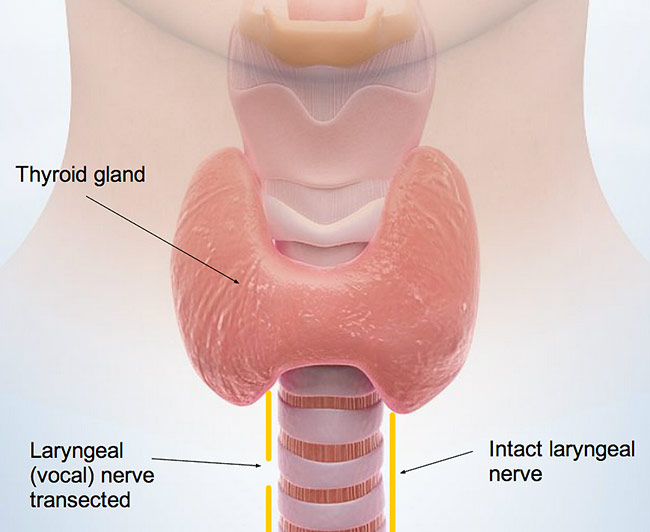Hyperthyroidism can lead to Corpus Luteum Insufficiency, which in turn can cause a potential miscarrige.
Hyperthyroidism is a common disorder that will lead to recurrent miscarriage and corpus luteum defect. Find out more about the causes, diagnosis and treatment here.

What Is Hyperthyroidism And Why Does It Cause Corpus Luteum Defect?
The hyroid is a gland that has a butterfly-like shape that is positioned in front of the neck. It is in-charge of producing hormones that controls the metabolism rate. With hyperthyroidism, or overactive thyroid, the two main thyroid hormones, triiodothyronine (T3) and thyroxine (T4) are secreted excessively. When your T3 and T4 levels are too high, your pituitary gland will release less Thyroid Stimulating Hormones (TSH). As a result of high levels of T3 and T4, your entire body’s metabolism will increase, and affect your menstrual cycle. It will increase ovulation frequency and shorten the luteal phase. Shortened luteal phase might lead to corpus luteum defect. With corpus luteum defect, your progesterone level will be lowered and greatly increase your chances of having a miscarriage. It will eventually a recurrent miscarriage if the hyperthyroid is left untreated.
Complications of Hyperthyroidism – recurrent miscarriage (reproductive immune disorder)
It is worth noting that patients with hyperthyroidism do not only suffer from recurrent miscarriage due to corpus luteum defect, but also because of a reproductive immune disorder. Reproductive immune disorder is not caused by hyperthyroidism, but it is a complication of miscarriage caused by hyperthyroidism. Reproductive immune disorder is often undiagnosed by other doctors. However, our doctor, Dr Chen Fenglin, discovered through his clinical research that reproductive immune disorder is a very real catalyst for miscarriages and accounts for 70% of all unexplained recurrent miscarriage. Hence, it is very important for patients with hyperthyroidism to check if they have reproductive immune disorder as well. In order for patients with hyperthyroidism and reproductive immunity disorder to have successful pregnancies, they should have their hyperthyroidism controlled, supplement their progesterone levels, and undergo an immunity treatment.
Antai hospital is the only hospital that provides the diagnosis and treatment of reproductive immunity disorder. If you already received treatment for hyperthyroidism but is still suffering from miscarriages, please visit Antai hospital to check for an immunological factor that can cause further complications in your fertility journey i.e. immunological recurrent miscarriage.
Symptoms of Hyperthyroidism
The two main thyroid hormones T3 and T4 will influence your energy levels, internal temperatures, weight, menstrual cycle, and more.
Hence, people with excessive T3 and T4 hormones will have the following symptoms:
- Shortened mensuration cycles
- Heavy menstrual flow
- Sensitivity to heat
- Hyperactivity/over-excitement
- Diarrhoea
- Weight loss/underweight
- Bulging eyes
- Fast heart rate
Medical History of Hyperthyroidism
People with hyperthyroidism might have the following medical history:
- Low progesterone levels
- Corpus luteum defect
- Thin endometrial lining
- Recurrent early miscarriage
Diagnosis of Hyperthyroidism
There are a few methods of diagnosis.
- Physical examinations. Your doctor might check for slight tremors in your fingers or feel for enlarged or bumpy lumps on your throat area.
- B-Scan. B-Scan can check for thyroid nodules, swelling, or thin endometrial lining.
- Thyroid function test. This most accurate way of testing for hyperthyroidism. Your hormone levels will be tested through a blood test measuring your hormone levels. Patients with hyperthyroidism will have elevated levels of T3 & T4, and low levels of TSH.
Treatment of Hyperthyroidism
Antai hospital has two different treatment procedures for hyperthyroidism depending on whether the patient is pregnant or not.
Treatment pre-pregnancy
Medicinal Drugs. Anti-thyroid medications such as methimazole (MMI) and propylthiouracil (PTU) may be prescribed to you to stop the excess production of hormones.
Surgery. Patients may have to undergo a thyroidectomy if they are not suitable to take the anti-thyroid medications. This procedure involves the removal of most of the thyroid glands.
Treatment during pregnancy
Medicinal Drugs. It is essential to supress the secretion of thyroxine (T4) in a timely manner. To do so, medications such as methimazole (MMI) and propylthiouracil (PTU) may be prescribed to you. At the same time, it is very important to take progesterone supplements to prevent a miscarriage.
Click HERE to read more about progesterone and the importance of it in maintaining a pregnancy.
Antai hospital specialises in the treatment of recurrent miscarriage and provides a full refund guaranteed if outcome is unsatisfactory or if you miscarry again. Get in touch with us today!